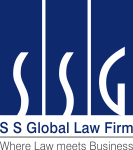The registration of trademarks is governed by ‘The Trademark Act, 1999’ (‘the Act’ hereinafter). A trademark registered under this act entails the following benefits:
i. The registration acts as prima facie evidence of ownership and validity
ii. Gives a national statutory protection
iii. Acts as a deterrent for others for using the mark/ logo/ device unlawfully
iv. Gives a right to bring any legal action such as a suit for infringement against third parties unlawfully using the mark.
There are two broad heads under which a trademark can be denied registration. They are the absolute conditions and relative grounds of refusal.
The absolute grounds as mentioned under Section 9 of the Act are as below:
i. It is not distinctive in nature or is descriptive of the goods/ services applied for;
ii. It has got elements which hurt religious sentiments;
iii. Use of obscene or scandalous elements;
iv. Its use is prohibited if a mark uses elements which are used exclusively for a. the shape of goods forming the nature of goods b. the shape of goods which are required to obtain a technical result c. the shape of goods which gives substantial value to the goods.
And, the relative grounds for refusal of trademark are enshrined in Section 11 of the Act. The conditions laid down in section 11 for refusal of registration of trademark are:
i. If its identical to any previously registered logo;
ii. If the logo to be registered has similarity with any previously registered logo which might lead to public confusion.
